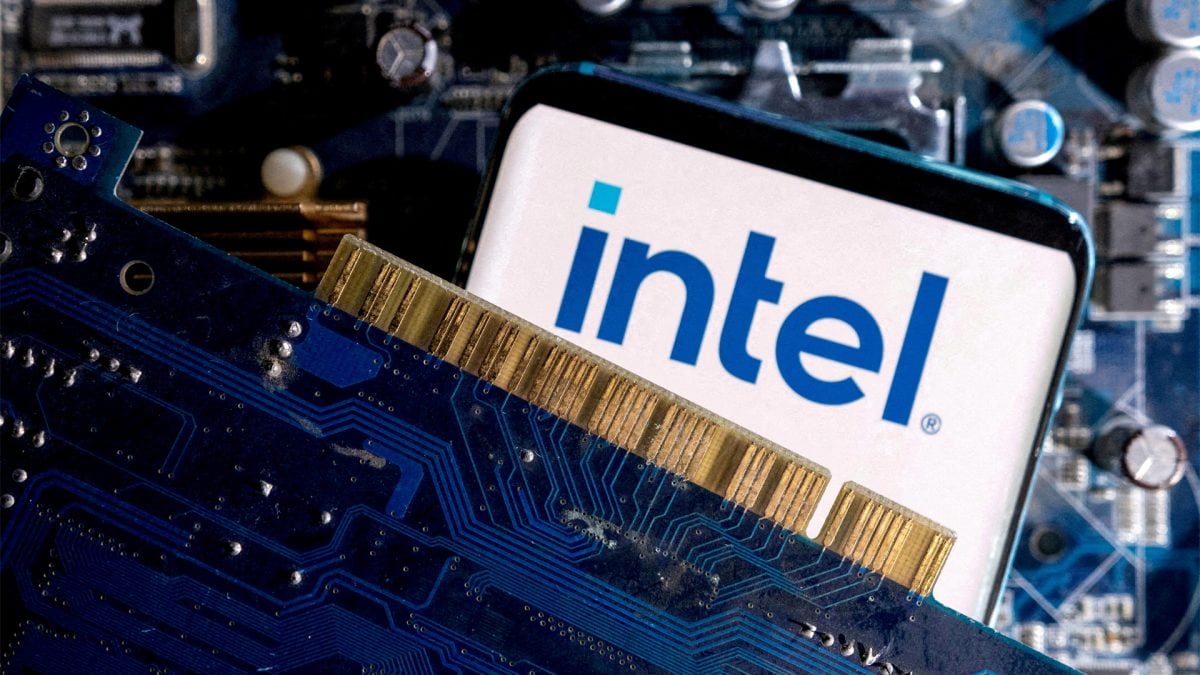
Intel has launched a groundbreaking initiative to deepen artificial intelligence (AI) engagement in India through the establishment of Intel AI PC Experience Development Centers at two of the country’s premier institutions, the Indian Institute of Science (IISc), Bengaluru, and the Indian Institute of Technology Hyderabad (IITH). This move is set to give students and researchers cutting-edge resources and mentorship to develop AI applications that could have far-reaching impacts across various sectors in India. The focus of these centres is clear: empower the next generation of innovators to use AI to tackle population-scale problems.
With AI emerging as a transformative force worldwide, Intel aims to advance this revolution through personal computing. Gokul Subramaniam, President of Intel India and Vice President of the Client Computing Group, told Firstpost the significance of this effort. By 2025, we’re expecting to have 100 million Intel-based PCs with AI accelerators in the market,” he explained.
This ambitious vision is not just about adding more AI PCs into the ecosystem but about redefining how these devices are used to improve productivity, creativity, security, gaming, and more. According to Subramaniam, the introduction of AI into PCs marks a new era of computing, making AI capabilities more accessible and immediate, with tasks being handled directly on the device rather than relying solely on the cloud. At the heart of this transformation are Intel’s advanced Core Ultra Processors.
These powerful processors are equipped with a combination of CPU, GPU, and Neural Processing Unit (NPU), designed to efficiently execute AI workloads on PCs. Subramaniam elaborated on the benefits of this setup, stating, “What this means is we have processors that provide performance and energy efficiency, and you can carry out AI tasks right on your PC. While hybrid solutions are possible, the technology makes on-device AI a reality.
” The integration of these components allows for seamless AI functionality on personal devices, unlocking a world of possibilities for students and researchers to develop novel applications and experiences. The AI PC Experience Development Centers are well-equipped with cutting-edge infrastructure, featuring hardware and software specifically designed to facilitate AI research and development. However, the initiative extends beyond just providing equipment.
Intel is deeply committed to supporting students and faculty through active collaboration and mentorship. The company’s technologists are working closely with students, offering guidance on building proof-of-concept applications and prototypes using AI. This mentorship covers a wide array of fields, ensuring that students gain hands-on experience in developing real-world AI solutions.
“Our technologists are working with students, faculty, and departments to mentor them on developing AI PC concepts and using AI for a wide range of applications,” Subramaniam said. The potential use cases are as diverse as they are impactful, ranging from healthcare and traffic management to agricultural innovations and smart city infrastructure. One of the unique strengths of these universities, and a major factor in Intel’s choice to partner with them, is their interdisciplinary nature.
Both IISc and IITH house a range of departments beyond computer science, such as material science, pharmacology, civil engineering, and chemical engineering. This interdisciplinary setup creates a fertile ground for collaboration, enabling students from various fields to come together and use AI to solve pressing issues. “The power of these institutes is their multidisciplinarity,” Subramaniam emphasised.
“We want to encourage creativity and innovation across departments, not just within computer science. AI becomes a tool for students from all fields to solve real-world problems.” The initiative is also about making AI more approachable and versatile, rather than limiting its use to specialised fields or academic study.
By embedding AI capabilities into personal computers, Intel is democratising access to AI technology. This approach allows students and researchers to leverage AI as a practical tool to develop solutions for a broad spectrum of challenges. “AI is a medium for innovation, allowing students to solve user-centric problems rather than just treating it as an academic subject,” Subramaniam noted.
This shift in how AI is perceived and utilised is crucial for spurring innovation across diverse disciplines. Intel’s commitment to an open ecosystem is another critical component of this initiative. The company has already collaborated with more than 100 independent software vendors (ISVs) and developed over 300 AI features that are currently operational.
In addition, Intel has launched an AI playground, a space where these AI models can be freely accessed and used by developers, researchers, and students. Subramaniam highlighted the importance of open standards in fostering innovation: “We provide hardware and software that are ecosystem-friendly and built on open standards, using technologies like OpenDino, ONNX, Runtime, and WebNN,” he said. By using open technologies, Intel is ensuring that these resources can be adapted and built upon by a broader community, making AI more accessible and easier to implement in various applications.
The initiative isn’t just about developing AI applications; it’s about empowering students to think differently. By offering a platform that’s not restricted to one field or commercial goal, these centers open up a world of creative possibilities. Unlike traditional settings where research might be confined to the interests of a specific company or department, these centres encourage students to pursue interdisciplinary projects.
“When I get to a campus, I’m looking at students who have energy, faculties that are exploring various problem statements, and departments tackling different challenges,” Subramaniam said. This approach broadens the scope of innovation, enabling projects in areas like material science, DNA research for new drug discoveries, or sustainable energy solutions, alongside traditional AI applications. Intel’s focus on AI education extends to helping students understand the layers of the AI technology stack.
Subramaniam described how different roles are emerging within the AI field: from application developers who build user-facing experiences to framework developers and algorithm specialists who work on the foundational models. “There is a variety of AI sciences and software involved,” he explained. This comprehensive approach ensures that students can find their place in the AI ecosystem, whether they are interested in creating new applications or diving into the more technical aspects of AI research.
As for future plans, Intel is taking a strategic approach. While IISc Bengaluru and IITH are the initial focus, there is potential for expansion to other institutions in the coming years. “We’re beginning with these two institutions and have set some clear goals,” Subramaniam shared.
“As we learn from these centres and see the outcomes, we’ll consider expanding. It’s as much about learning and scaling as it is about supporting innovation.” This phased approach allows Intel to refine its model and ensure that it delivers maximum impact as it scales up.
.














